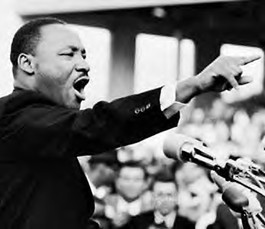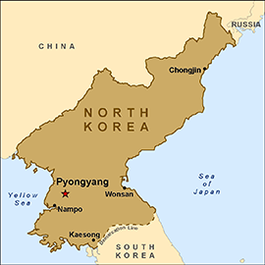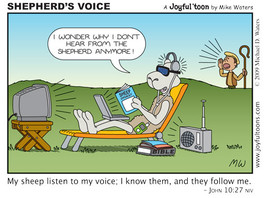The headline on page 1 of the sports section caught my eye. A piece written by Jim Litke, Associated Press columnist, tells the behind-the-scenes story of the firing of legendary Penn State Nittany Lions football coach Joe Paterno last November. With Paterno’s death from lung cancer this Sunday, the wounds the university has suffered since the child molestation charges against Jerry Sandusky, one of Paterno’s assistant coaches, and the subsequent Paterno firing have broken open all over again. According to Litke, on the night of Paterno’s firing an assistant athletic director knocked on the door of the Paterno home and “wordlessly” handed him a note with the name and phone number of John Surma, vice chairman for Penn State Board of Trustees. Paterno dialed the number, asked for Surma and in that ‘mercilessly brief call, [he] was told that after nearly a half-century as head coach of the Nittany Lions, he was being fired ‘effective immediately’” (South Bend Tribune 1-23-12). When Paterno hung up from the short phone call, his wife Sue picked up that slip of paper, dialed the same number, and told the voice on the other end, “‘After 61 years he deserved better,’” and hung up. And who would disagree? No matter the magnitude of the legal charges against his assistant, no matter how complicit Joe Paterno was or wasn’t in responding to the reported incident years earlier, wouldn’t he still deserve, at the least, a personal visit from somebody “higher up” with word of the Trustees’ decision? How swift their decision—but how sad that “they couldn’t muster enough courage or decency to fire Paterno in person” (ibid). “After 61 years he deserved better.” But while I brooded over this story, I began to wonder about my own modus operandi. Have there been times when I’ve chosen to summarily dismiss someone (in my mind, if not in person) as being “guilty as charged,” without ever extending the common decency of allowing that person to explain his or her stance or behavior or choice? Do I find it easier to avoid Jesus’ Matthew 18 interpersonal relations admonition: “‘If your brother or sister sins, go and point out their fault, just between the two of you’” (Matthew 18:15 NIV)? Do I avoid personal confrontation by hiding behind a board or committee action? In short, I wonder, does the Golden Rule (“Do to others what you would have them do to you”) get shelved, when I don’t have (take, really) the time to put myself in that other person’s place? “After 61 years he deserved better.” Sue Paterno was right. And so is Jesus: “‘By this all will know that you are My disciples [people], if you have love for one another’” (John 13:35). Because never mind Penn State. What counts for the Kingdom are the friends of the King. And it is that headline that lasts long past page one.
Pastors' Blog
By Pioneer Pastors
Anybody for a cruise in the Mediterranean? The capsizing of the massive luxury liner, the Costa Concordia (twice the size of the ill-fated Titanic), has galvanized the attention of the gaping world. According to some reports a mere 300 feet from shore, this luxurious $450 million floating city of 4200 passengers and crew struck a rocky outcropping in the reef off the island of Giglio, gashed a fatal hole in its hull, rolled to one side and began to sink. Only the snagged reef kept the vessel from sinking to the seabed 160 feet below. As a missionary child in Japan I sailed with my family around the world twice in ocean liners. And Karen and I have enjoyed a couple cruises along the way. But I can only imagine the panic of that sea-faring vessel tipping to its side at night, the power out, all its occupants and furniture slammed into heaps against leaning walls precariously becoming floors! It’s the stuff of nightmares, I’m sure. And to listen to the survivors’ harrowing accounts of those dreadful hours trying to get to life-boats or at least to one of the decks in order to leap into the black waters—all the while the captain of the sinking vessel had already abandoned ship with some of his officers—you can hardly blame those who have pledged not to “cruise” again . . . or at least not for a long time! But for the rest of us land-lubbers, what’s the point in this morality tale? It is Titanic redux. The Costa Concordia boasted state-of-the-art technology and opulent comforts second to none. What on earth could possibly harm this gaily-lit, sea-faring, horn-blasting ocean vessel of revelers, partiers and vacationers? It is the tale of our own civilization in the “fourth watch” of earth’s night, isn’t it? Not unlike the besotted revelry that possessed Belshazzar’s palace that last night on earth—where in the night watches the vessel of that ill-fated empire suddenly lurched, gashed open by the bloodless hand writing on the wall: “MENE, MENE, TEKEL, UPHARSIN—you have been weighed in the balances and found wanting” (Daniel 4:25-28). Time’s up, the party’s over, here comes the Judge. What will save our own civilization in this fourth watch of the night? Not the hubris of the captains and titans of industry, government and finances, that is certain. Earth’s only hope lies in the One who walks upon our stormy night waters. “Be of good cheer! It is I; do not be afraid” (Matthew 14:27). Christ still cries out into the night His offer of salvation, and we who know Him best must tell the rest. To not share our Savior with those on this sinking ship would be tantamount to scrambling into the life boat ourselves, but ignoring the countless others who, unless we reach out to pull them on board, will likely perish in the night.

On this weekend when the nation recalls the life and mission of Martin Luther King, Jr.—frail like every life, but focused like a laser on a mission towards the equality of all—it is appropriate for this community of faith to ponder that mission in the light of our own. Were Dr. King to join us around our communal table, what would be the conversation? In fact, let’s pull up another chair to the table and invite President Barack Obama to join in this table talk. Would the conversation change that much? If our chatting drifted toward the judicatory organization of the Seventh-day Adventist Church in North America, and these two African-American leaders (one deceased, the other very much alive) began to question us as to why we are organized the way we are, how would we respond? What would be the line of reasoning we would put forth to defend regions of this nation divided racially (essentially) into “separate but equal” conferences or ecclesiastical units of administration? How would we justify the organization of separate (but equal) black and white congregations in the same city based upon the prevailing racially distinct conferences? Would recounting the history of our faith movement in this nation and our own accommodation to the prevailing social norms a few generations ago be helpful in defending our present course? Would the suggestion that our ecclesiastical division is a provision so that “all” might enjoy the prerogatives of administrative leadership be persuasive? Would Dr. King and President Obama find our logic strong and our rationale convincing? But never mind those two leaders—let’s ask it another way. Would society today—does society today, the American public at large, lend much credence to “the way we’ve always done it” defense in matters of racial equality? The truth is—history may be our mother, but it doesn’t have to be our master. We yield allegiance to another Master, which was precisely Paul’s stunning point to the church in Galatia two millennia ago: “For in Christ Jesus you are all children of God through faith. As many of you as were baptized into Christ have clothed yourselves with Christ. There is no longer Jew or Greek, there is no longer slave or free, there is no longer male and female; for all of you are one in Christ Jesus” (Galatians 3:26-28 NRSV). Paul’s declaration did not minimize the massive challenge that preexisting walls were to the church of Christ. But his assertion means that the community founded upon Calvary can never peacefully coexist with such dividing walls—no matter how difficult their disassembling may turn out to be. Besides, if “revival and reformation” are the watchwords of our third millennial community of faith, then would it not follow that as a prerequisite to such a revival we would join together in tearing down any walls, all the walls that divide us, whether on paper or in the heart? For how can the Holy Spirit possibly be poured out, when a wall blocks the way? And so I am praying that God will raise up a new generation, passionate for the unity of Christ and willing to do the hard work to rewrite a future without walls. Not for the sake of Martin Luther King, Jr.—but for the sake of Christ Jesus our Lord, who upon the eve of His own death, prayed for us all: “Holy Father, that they may be one as We are” (John 17:11).

Look, I’m not suggesting that the just concluded Iowa caucuses and the upcoming New Hampshire primary are strategic pieces in some sort of apocalyptic end game. But I would invite you to ponder the power of the press and/or paid political ads. Even the talking heads within the beltway of the nation’s capital this past week have been chattering in amazement over the swift collapse of one candidate’s heretofore anticipated victory in Iowa’s caucuses. Riding high in the pre-caucus polls, the candidate’s sudden tumble from prominence has been attributed by most news media commentators to the power of negative political advertising, financed by political action committees (so called “super PACs”). The $2.8+ million that these technically “independent” super PACs invested in Iowa alone are evidence enough of the power of negative advertising. I.e., it works! What’s that have to do with the rest of us who will never touch $2.8 million in our life time? Stepping away from political allegiances or nuances, it does make you wonder, doesn’t it, how fickle we the public are, if three-weeks of non-stop television and radio ads can actually change our minds? Never mind those who justify this gushing of advertising dollars into a relatively, politically inconsequential rural state. It still makes me wonder how easily swayable we Americans are to the power of the media, the press, the advertising agencies. Which being interpreted means, I wonder if, in a time of crisis or critical decision-making, a relatively small cabal of individuals—with the financial horsepower to back themselves—could sway an entire nation to pursue a particular course or come to a particular decision. I wonder if the American public (perhaps even the global public) could be as easily persuaded as the Iowans were. Include some momentous catastrophe (financial, natural, political) and it wouldn’t take much to “guide” the public to a desired outcome, would it? For all our crowing about the independent American spirit, the truth is that a stadium full of screaming fans can pretty much set the agenda for an entire city, can’t they? Apparently the Apocalypse thinks so. In no uncertain terms Revelation 13 describes “all the world” (v 3) being led down the primrose path of disaster. Which is why I love the corollary narrative in Daniel—the compelling story about three young politicos who refused to yield to the full-court press of the press and the government. The entire nation (as it were) bowed down to the king’s golden image—but not Shadrach, Meshach and Abednego: “Our God whom we serve is able to deliver us from the burning fiery furnace, and He will deliver us from your hand, O king. But if not, let it be known to you, O king, that we do not serve your gods, nor will we worship the gold image which you have set up” (Daniel 3:17, 18). I.e., we will not be bought or persuaded away from our allegiance to the Creator. God give us that threesome generation when we will need it! But in the meantime, the next time the press or the super PACs attempt to persuade you in 60 seconds what to think or do, do the Shadrach thing and simply refuse. Your allegiance to God in the New Year isn’t for sale, no matter when the world ends.

The world in the West awakened on Monday to the news that while we slept the 69 year old recluse and quixotic leader of North Korea had succumbed to a heart attack. Kim Jong II was dead. The North Korean press dutifully reported that the “dear leader” died of “overwork” and “great mental and physical pain” accumulated from “dedicating his life to the people.” And I could not help but wonder how it will be with the North Korean people Kim Jong II left behind. Their publicized expressions of grief and dismay over their “great leader’s” demise notwithstanding, how shall they survive? The notorious lack of food production in that hermit (and hermetically sealed) nation reportedly has produced a half-starved citizenry, eking out an impoverished existence. The nation’s ruling philosophy—that there is no God—has meant that there is no divine Responder to the human plight, no Creator to whom the struggling might appeal. And, God forbid, no Christmas story to offer even a glimmer of hope for a downtrodden people. So what Christmas shall the North Koreans enjoy? Oh, you say, if only we could tell them the truth about the first Christmas long, long ago—if only they could taste the elixir of hope embedded in that manger box of feed—if only they might come to know the Christ Child grown up and crucified and buried and risen—then surely, like their dominantly Christian cousins to the south, they too could be resurrected into western prosperity and Christian faith (perhaps not in that order). And yet I look at the American experiment in “believing” the now ancient Christmas story. Where has it gotten us? Last month the Associated Press reported: “The ranks of America’s poorest poor have climbed to a record high—1 in 15 people—spread widely across metropolitan areas as the housing bust pushed many inner-city poor into suburbs and other outlying places and shriveled jobs and income. New census data paint a stark portrait of the nation’s haves and have-nots at a time when unemployment remains persistently high. It comes a week before the government releases first-ever economic data that will show more Hispanics, elderly and working-age poor have fallen into poverty. In all, the numbers underscore the breadth and scope by which the downturn has reached further into mainstream America” (SBTribune 11-3-11). It is a baleful harvest when you embrace only one of the two Advents Scripture has promised. For what good is all the singing about once-upon-a-time, when the here-and-now is left woefully unaffected, pitifully unchanged? The Apostle Paul correctly protested: “If for this life only we have hoped in Christ, we are of all people most to be pitied” (I Corinthians 15:9). Unless we radically embrace both the First and Second Advents, all the societal commotion over the First Advent is meaningless, hopeless—is it not? Are those Americans, who are as unmindful of the Advent yet to come as the North Koreans, any better off in terms of eternity? This Christmas what if we who call ourselves “Advent-ists” (we who are passionate about both Comings of Jesus) pushed our passion to action? What if we discovered a “North Korean” closer to home—someone, some family eking out an impoverished existence in this land of plenty? Not to assuage our guilt, but rather to manifest our hope, by helping another not of our tribe. What if we celebrated a North Korean Christmas here at home? Don’t you suppose someone’s New Year might yet bring reason to believe, to hope—if we really cared?

A few weeks ago Charles Schultz’s syndicated Peanuts cartoon went apocalyptic. Frame 1: Lucy to Charlie Brown, “I don’t worry about the world coming to an end anymore.” Frame 2: She continues, “The way I figure it, the world can’t come to an end today because it is already tomorrow in some other part of the world.” Frame 3: Lucy turns and asks Charlie Brown, “Isn’t that a comforting theory?” Final frame: Lucy smiling but Charlie Brown muttering, “I’ve never felt so comforted in all my life!” What do the end of the world and Christmas have to do with each other? One word: Advent. Which being interpreted, of course, means the Messiah’s coming. First time. Second time. Both times, “God with us.” Advent. The American lawyer and social activist, William Stringfellow, in his essay, “The Penitential Season,” bemoans the loss of meaning of this Advent season in America: “For all the greeting card and sermonic rhetoric, I do not think that much rejoicing happens around Christmastime, least of all about the coming of the Lord. There is, I notice, a lot of holiday frolicking, but that is not the same as rejoicing.” Why the loss of a deeper joy in this season? “The depletion of a contemporary recognition of the radically political character of Advent [i.e., “that message that in the coming of Jesus Christ, the nations and the principalities and the rulers of the world are judged in the Word of God”] is in large measure occasioned by the illiteracy of church folk about the Second Advent and, in the mainline churches, the persistent quietism of pastors, preachers, and teachers about the Second Coming. . . . Yet it is impossible to apprehend either Advent except through the relationship of both Advents” (in Watch for the Light 104, 105). Did you catch that? “It is impossible to apprehend either Advent except through the relationship of both Advents.” In all holiday candor, it makes me wonder—not just about Americans, but about those of us who bear the name “Advent-ists.” Have we inadvertently (and no doubt, innocently) abandoned the apocalyptic connection between the two Advents, between Christmas and the Second Coming? And yet in of this season’s most beloved and lauded of compositions, George Frederick Handel’s The Messiah, the composer powerfully and convincingly weaves together the theme of both Advents in his magnum opus. Isaiah’s grand prophecy—“For unto us a Son is given”—is inseparably joined with the Apocalypse’s mighty Hallelujah chorus—“For the Lord God omnipotent reigneth!” Because it is impossible to comprehend either Advent “except through the relationship of both Advents.” Stringfellow was right. Then shall we not join him, and this Christmas set ablaze the candle of our joy, not only for the Advent that is past, but also for the One who is coming? “Oh that today the human family could recognize that song [“Glory to God in the highest”]! The declaration then made, the note then struck, will swell to the close of time, and resound to the ends of the earth” (Desire of Ages 48).

Don’t you love the Mike Water’s “Joyful ‘toon” cartoon Greg Offenback came across this week? Talk about one sophisticated sheep! Look at him (or is it, her). Catching some rays on his outdoor recliner and reading the latest “Sheep Digest” magazine—Mr. Cool sunglasses on, iPod and headphones blaring away, ditto for the TV in front of him, double ditto for his radio beside his chair, a stack of books on the ground (the Bible at the bottom)—in the distance his shepherd calling him—and what’s the sheep’s quip: “I wonder why I don’t hear from the shepherd anymore!” You go, Mr Sheep and Greg and all of us! Talking about a “perfect” follow-up to last Sabbath’s Good Shepherd teaching (“The Last Word: Of Sheep and Shepherds and the Midnight Star”—videocast at this web site: www.pmchurch.tv). “‘My sheep listen to my voice; I know them, and they follow me” (John 10:27). What’s that have to do with Christmas? Simply this—in the cacophony of the holiday’s frenetic bustle, may we (you and I) resolutely carve into every day a quiet space of time where alone with the Good Shepherd we hear His voice. Why? The English writer J. B. Phillips once answered: “That is why, behind all our fun and games at Christmastime, we should not try to escape a sense of awe, almost a sense of fright, at what God has done. . . . Nothing can alter the fact that we live on a visited planet. We shall be celebrating no beautiful myth, no lovely piece of traditional folklore, but a solemn fact. God has been here once historically, but, as millions will testify, he will come again with the same silence and the same devastating humility into any human heart ready to receive him” (quoted in Watch for the Light 24). That is why.

I realize that the times call for a bit of creativity now and then—but this creative? In a Black Friday mad dash for an Xbox video game console on sale, a woman at a Los Angeles Wal-Mart last week neutralized her competition (twenty other shoppers) racing for that same electronic toy. She did it with resolve and a nifty little can of pepper spray. Blinded all twenty of them. And hands down (and eyes shut), she won! Merry Christmas, children. But hers was hardly an isolated instance of Christmas shopping aggression. Commenting on the rash of "shopping related violence [rolling] in this week from Los Angeles to New York," the Associated Press reported (in classic understatement) that "experts say a volatile mix of desperate retailers and cutthroat marketing has hyped the traditional post-Thanksgiving sales to increasingly frenzied levels." Do you think! "With stores opening earlier, bargain-obsessed shoppers often are sleep-deprived and short-tempered. . . . Add in the online-coupon phenomenon, which feeds the psychological hunger for finding impossible bargains, and you've got a recipe for trouble, said Theresa Williams, a marketing professor at Indiana University" (South Bend Tribune 11-27-11). Though probably not enough trouble to convince businesses (and shoppers) to back off. According to the National Retail Federation, American shoppers last weekend spent an all-time high of $52.4 billion--up 16% from the same weekend the year before. And Cyber Monday online sales were $1.25 billion, 33% higher than last year. Did somebody say "economic recession?" Not wanting to be the Grinch that stole Christmas or sound like Dave Ramsey, but I wonder aloud: How much of these sales were credit card purchases to be paid off sometime in the New Year? All because everyone else is doing it? So what would happen if we turned counter-cultural for Christmas? What if we shifted the paradigm, and instead of focusing on how profusely we can give to those we know and love best, we instead began to ask how sacrificially we might give to those we know the least? Like the record number of Americans in the latest census (49.1 million) now considered poor. Don't know anybody that poor? They live 12 miles up the road from us in the inner city of Benton Harbor. Some live right here in university housing. So what if you adopted a family in need (up there or here)? Our Neighbor to Neighbor community service center in town (269-471-7411) has a list of needy families (up there and here)--why not call and ask how you might help one of those families? For the second year now, our church staff is choosing not to exchange gifts at our Christmas party, but rather combine all of our cash gifts for one of those needy families. We're no heroes. But it's proof enough that the paradigm can be shifted. Collectively, personally, simply. All it takes is for someone in your family to make the suggestion. (Which by the way isn't a moratorium on a gift or two for our own loved ones--just a shifting of focus to the more needy we don't even know.) "For you know the grace of our Lord Jesus Christ, that though He was rich, yet for your sakes He became poor, that you through His poverty might become rich" (II Corinthians 8:9). No shopping madness (or blindness) on that starry night. Just the quiet emptying of Heaven's treasury for the poorest of the poor--you and me. Since we have received so freely, shall we not then freely give?

Nathaniel Philbrick, in Mayflower, his acclaimed history of the Pilgrims, recounts how William Bradford, the intrepid leader of that courageous band of Puritans, years later described “that first morning in America.” Recalling with wonder their landing on the salty, windswept shores of Cape Cod Bay on November 15, 1620, Bradford wrote: “But here I cannot stay and make a pause and stand half amazed at this poor people’s present condition. . . . [T]hey had now no friends to welcome them nor inns to entertain or refresh their weather-beaten bodies; no houses or much less towns to repair to, to seek for succor. What could sustain them but the spirit of God and His Grace? May not and ought not the children of these fathers rightly say: ‘Our fathers were Englishmen which came over this great ocean, and were ready to perish in this wilderness; but they cried unto the Lord, and He heard their voice and looked on their adversity’” (46). His words are appropriate, not only because we celebrate the nearly four century tradition of the Pilgrims’ thanksgiving this week. But in Bradford’s description—“they cried unto the Lord, and He heard their voice and looked on their adversity”—perhaps we also hear the faint hint of a day of adversity yet coming upon this land of the Pilgrims. Could the breath-taking speed with which this nation’s hourly economic headlines are unfolding or unraveling these last few weeks be a portent of what is yet to come? Could this land of the free have already seen her best days? Scribbled on the page of Revelation 13 in my Bible are these words written a century ago: “The Lord has done more for the United States than for any other country upon which the sun shines” (Ms 17, 1906). Hardly a prideful claim of superiority or grounds for national arrogance, this quiet observation simply declares a common truth that this country has enjoyed the uncommon blessings of Providence. And in the sunlight how easy is the spirit of thanksgiving. But should the days turn dark and the supernal blessings wither away, what shall we be grateful for then? A year after their landing, the Pilgrims gathered for that first thanksgiving—half of their band already buried beneath the Massachusetts sod. Yet they gave thanks to God. And so must we. No matter the uncertain voyage that spreads before us, nationally or personally. The Almighty is still that. And in the darkest storm his mercy will yet triumph. Just look at Calvary. “Oh, give thanks to the LORD, for He is good! For his mercy endures forever” (Psalm 136:1).

The sirens wailed by as I was out jogging early Tuesday morning. From their sounds, it appeared that not only our Oronoko-Berrien Springs volunteer fire department was responding, but units from nearby towns as well. Only later did I learn of the deadly fire that engulfed an apartment building not far from campus. Eye witnesses spoke to John Paul, an WSBT-TV reporter who wrote up an account for the South Bend Tribune (11-16-11). Rhodel Kabah, a resident of the apartment complex, told him, "I kept hearing shattering glass and screams." A neighbor, Quigley Morris, described standing outside the raging inferno: "The most difficult thing I've ever done in my life was to stand and listen to the mother cry and know there's a kid in there." The three-year-old child was trapped in an upstairs bedroom. The parents tried to coax her to the bedroom window, but she was too frightened. "When they told me a kid was in there, I said we have to do something," Morris went on. "[But] when we tried to go through the door, it was impossible. The smoke was in our faces." Firefighters later recovered the child's body. The child's father was airlifted to a burn unit in Kalamazoo, where he is recovering from extensive burns and broken feet from his second-story jump. Berrien Springs Oronoko Township fire chief Bruce Stover later observed that the fire simply grew and spread too rapidly, preventing any possible rescue of the trapped three-year-old. "We couldn't go in," he said. "We wanted to go in, but we couldn't go in; there was nothing we could [do] to search for the child." And so our community mourns with the grieving family. "We couldn't go in." Because the truth is, sometimes it is simply too late - too late to save the entrapped, too late to "rescue the perishing." In a civilization whose flash points and hot spots could engulf an entire region or even the world in a matter of days, the fate of seven billion really is a big deal, isn't it? How many of earth's children are even cognizant of the smoldering danger that could at any moment explode into an inferno? What shall we do for them? What if we had known a way to save that little girl this week - what if we could have rescued her but chose not to? How would her parents respond? Desire of Ages minces no words: "How would a father and mother feel, did they know that their child . . . had been passed by, and left to perish, by those who might have saved it? Would they not be terribly grieved, wildly indignant? Would they not denounce those murderers with wrath hot as their tears, intense as their love?" (825). And could you blame them? Now comes the zinger: "The sufferings of every man are the sufferings of God's child, and those who reach out no helping hand to their perishing fellow beings provoke His righteous anger" (ibid). The very strong point? We cannot stand by and do nothing. Because the people we study with, work with, live with, play with, and neighbor with belong to our Father, they are our family, too. We must go in after them. After all, Christ did for us - irrespective of the infinitely high cost he had to pay. We must go in after them. For Jesus' line seems all the more apropos as the holidays approach, "Freely you have received; freely give" (Matthew 10:8). Milton Agay, police chief for our village and township, told the reporter: "You wish you could do more, but what can anyone say? You just feel heartbroken for the family and for the loss of a life." Well put, Chief. So let us go in now before it's too late.
- ‹ previous
- 41 of 62
- next ›
